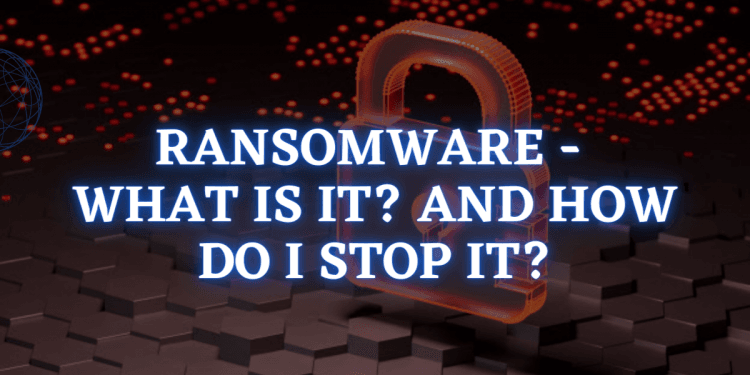Ransomware is a type of malware that encrypts a victim’s files and demands a ransom payment in order to decrypt them. Ransomware attacks are becoming increasingly common, with a wide variety of ransomware strains appearing in the wild. Many of these strains are highly sophisticated and can be very difficult to remove without paying the ransom.
Ransomware is typically spread through phishing emails or malicious websites. Once a user opens a malicious email attachment or visits a malicious website, their computer can be infected with ransomware. Once infected, the ransomware will start encrypting the victim’s files. The victim will then see a ransom note informing them of the situation and demanding a payment in order to decrypt their files.
Ransomware payments are typically made in Bitcoin or another cryptocurrency. This is because Bitcoin is very difficult to trace and the ransomware authors can remain anonymous. Once a ransom is paid, the victim will usually receive a decryptor tool that can be used to decrypt their files. However, there is no guarantee that the decryptor tool will work or that the ransomware authors will actually provide it.
Ransomware is a serious threat and can be very costly to victims. It is important to be aware of the risks and take steps to protect yourself. Make sure you have a good backup strategy in place in case of an attack, and be cautious when opening email attachments or clicking on links.
How do I stop ransomware from affecting my business?
There are a few things you can do to help protect your business from ransomware:
1. Keep your software up to date: One of the best ways to protect your business from ransomware is to keep your software up to date. This includes your operating system, as well as any applications you use. Outdated software can have security vulnerabilities that can be exploited by ransomware.
2. Use a reputable antivirus: Another important way to protect your business from ransomware is to use a reputable antivirus program. This will help to detect and remove any ransomware that may try to encrypt your files.
3. Back up your data: One of the best ways to protect your business from ransomware is to regularly back up your data. This way, if your files are encrypted, you will still have a copy that you can restore from.
4. Be cautious of emails: One of the most common ways that ransomware is spread is through email attachments. Be cautious of any emails you receive, even if they appear to be from a trusted source. If you’re not expecting an attachment, don’t open it.
5. Be cautious of links: Similarly, ransomware can also be spread through links in emails or on websites. If you’re not sure if a link is safe, don’t click on it.

By following these tips, you can help to protect your business from ransomware.
Can penetration testing help to prevent ransomware?
Penetration testing, also known as ethical hacking, is a process in which an ethical hacker attempts to gain access to a system or network in order to find security vulnerabilities. This information can then be used to improve the security of the system or network.
Penetration testing can be an effective way to find and fix security vulnerabilities before they can be exploited by attackers including vulnerabilities that will allow attackers to inject ransomware. It can also help to raise awareness of potential security risks and help organizations to develop more effective security strategies.
However, penetration testing is not a silver bullet and will not necessarily prevent all attacks. It is important to remember that no system is 100% secure and that even the most well-protected systems can be breached if an attacker is determined enough.
Organizations should consider penetration testing as part of a wider security strategy that includes other measures such as strong access control, data encryption, and regular backups.

















































